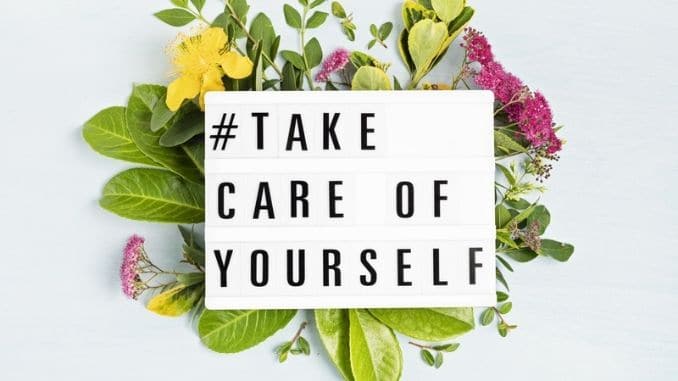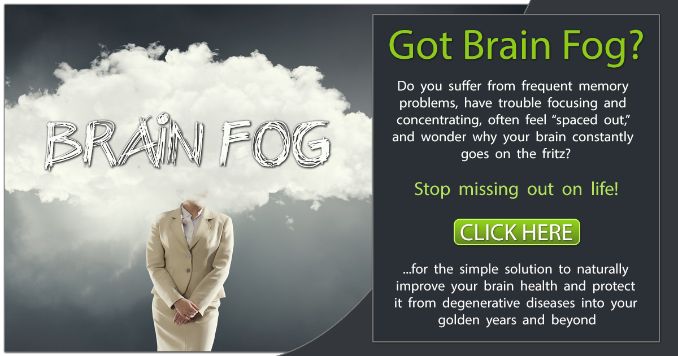
So far, 2020 has brought unprecedented and widespread distress, significantly impacting the mental health of most of us. Despite how emotionally stable we were before this year, none of us were fully prepared for the challenges we’ve faced over the last several months. It’s essential now more than ever to focus on ways to protect your mental health to navigate these stressful times and maintain emotional resilience.
As with any global train wreck or expansive crisis we may face. There are choices to be made about how to perceive and process the unsettling events over which we have no control.
Unprepared, we may be shaken in a way that leaves us both permanently scarred and frightened – with little hope for our future. However, there are ways to protect your mental health all along the road of uncertainty. That will strengthen your countenance and prepare you to endure the trials and joys that lie ahead.
One thing is absolutely certain; we’re in this together. At EFI, we’re here to help you and your loved ones forge ahead through the unpredictable terrain. Read along as we proffer our 4 best tips for protecting your mental health right now so that you’ll be unruffled when the boat starts rocking.

4 Ways to Protect Your Mental Health
1. Root yourself in something deeper.
Day-to-day life is shallow, temporal, and fleeting. Nonetheless, the human brain facilitates a complex structure that operates on a rather profound and extensive level, far beneath the surface. One of the most worthwhile things you can do to protect and strengthen your mental health is to regularly enter into the deeper dimensions of reality.
This includes activities like therapeutic journaling, setting aside 20 minutes a day for meditation, or immersing yourself in spiritual practice. While this may sound a bit superfluous, it’s well-researched advice.
Therapeutic Journaling
A 2018 study published in the Journal of Medical Internet Research focused on the mental health of 70 adult participants. Experts found that when the subjects completed only 15 minutes of therapeutic journaling, three days a week for 12 weeks. They displayed increased feelings of well-being and a measurable decline in mental distress.
Further, the study participants reported less depressive symptoms and stronger resilience to stress and anxiety even two months after the end of the 12-week study.
Deeply religious or spiritual practice has also been shown to strengthen a person’s mental health. Rob Whitley, PhD., Principal Investigator of the Social Psychiatry Research and Interest Group, at the Douglas Hospital Research Center in Montreal wrote, “The amassed research indicates that higher levels of religious belief and practice is associated with better mental health. In particular, the research suggests that higher levels of religiosity are associated with lower rates of depression, anxiety, substance use disorder, and suicidal behavior.”
Whitley also went on to write, “For example, regular attendance at a place of worship embeds an individual into a community of people who can offer material, moral, emotional and social support, all of which can foster good mental health. Similarly, many people with mental illness report that private prayer, devotional readings, and religious programming (on TV, the radio, or the internet) can provide solace and comfort, which can enhance the recovery process.”

How to get rooted in something deeper
If your family has a faith practice, such as attending church, reading sacred texts, or observing religious holidays, delve deeper into the faith. Read more about the history of your religion and seek out long-time practitioners who can lead you into a more profound understanding of your beliefs.
Often, pastors, imams, and rabbis make themselves available for spiritual direction or mentorship. Attend services at least once a week or tune into live streams online. Begin your morning with a time of prayer and devotion to your higher power. And end the day with a similar encounter.
If you aren’t religious or would prefer not to explore a supernatural influence. Consider grounding yourself with a deep and consuming practice such as daily meditation, weekly meetings with a professional therapist, engaging in tai chi, or therapeutic journaling.
All of these practices will help you protect and strengthen your mental health when used regularly. You can usually find tai chi groups that meet outdoors in parks for early morning exercise. Meditation can be easily implemented into your morning or evening routine at home. And with a quick search online or a trip to the bookstore, you can find a guide to the practice of therapeutic journaling.

2. Replenish and reboot regularly.
In case you haven’t come to this understanding on your own, let me deliver a gentle reminder: you are not a robot. Your body is fully human and requires regular sleep, rest, and downtime.
You wouldn’t run your vacuum cleaner 24 hours each day, seven days per week without once stopping to unplug the machine and let it cool down. But many times, we think we can work late into the night. Wake up extra early to get a jump on projects and skip the weekend to bang out more work.
According to researchers at Harvard Medical School, if you aren’t resting your brain and body, you’re setting yourself up for poor mental health. In Harvard’s Mental Health Letter, we found this passage to illustrate the brain’s explicit need for replenishment through rest: “The brain basis of a mutual relationship between sleep and mental health is not yet completely understood.
But neuroimaging and neurochemistry studies suggest that a good night’s sleep helps foster both mental and emotional resilience, while chronic sleep deprivation sets the stage for negative thinking and emotional vulnerability.”
How to replenish and reboot regularly
First of all, and perhaps most importantly, get some solid rest each night. At the risk of sounding like someone’s mother here, you need to get to bed at a decent hour and stay there until the sun comes up every single night. We published an article titled 7 Natural Ways to Fall Asleep and Stay Asleep. If you struggle to sleep well, the techniques we suggested will absolutely help you. Make it a priority to get seven to nine hours of quality sleep in the dark each night.
Replenish yourself also by taking regular breaks throughout the day. Give yourself five or ten minutes to practice deep breathing, stand up from your desk and take a quick walk outside or phone a friend for a quick chat. Press pause a few times every day to allow your mind the chance to reboot and start fresh. If you know that taking a breather is something you might struggle with, consider reviewing our Top Relaxation Tips, Tricks and Resources.

3. Avoid addiction.
Wait, wait – don’t skip this section because you haven’t used any heavy street drugs this week. That’s not entirely what we’re talking about here. Your brain, central nervous system, and ultimately your mental health is protected best when it’s not reliant on a third cup of coffee to get going in the morning, a cigarette to calm your nerves, or a couple of glasses of wine to unwind at night.
One set of research featured in Dialogues in Clinical Neuroscience outlined the connection between mental health and the addiction to alcohol, nicotine, and caffeine. Researcher Marc-Antoine Crocq, of the Institute for Research in Neuroscience and Neuropsychiatry in Rouffach, France wrote: “Alcohol, nicotine and caffeine share several common features.
Being palatable for their mild psychotropic properties, they are the most widely consumed drugs worldwide. As licit psychoactive drugs, they are used mostly by ‘normal’ people, in contrast to illicit ‘hard drugs,’ which are traditionally viewed as the province of the deviant.” These are socially acceptable drugs.
Mental Health and Addiction
Most casual users aren’t forced into rehab centers or the subject of an intervention. We buy these addictive drugs right alongside our groceries and in the presence of our communities.
However, Crocq writes that alcohol dependence often results in, “Withdrawal delirium, psychotic disorders with delusions or hallucinations, persisting dementia, and persisting amnestic disorder.” Habitual use or addiction to alcohol does nothing to fortify your mental health and can, in fact, be detrimental.
We all know the obvious dangers of nicotine addiction. Additionally though, for the brain, an addiction to nicotine has negative effects. Crocq cited a study in rats that showed, “that nicotine produces selective degeneration in the medial habenula, a region with a dense concentration of nicotinic cholinergic receptors.” Any degeneration of the brain is bad for your overall mental health and should be, at all costs, avoided entirely.
I remember once hearing someone recount that when he quit drinking caffeinated coffee, he could clearly see how caffeine affected others in work meetings. He said that after a while of sitting together in a conference room with most of the attendees drinking cup after cup of coffee. The intensity of the meeting would increase and irritability was more common among his colleagues.
He was the odd man out, drinking decaf, but remaining even-keeled and collected. While the withdrawal symptoms of caffeine addiction can be somewhat brutal. It’s best for a person’s mental health to get out of the habit of daily consumption.

How to avoid addiction
It’s a true understatement to say that it isn’t easy to give up the routine use of alcohol, nicotine, or caffeine. But it’s true of benefit to your overall mental health to nix your dependence on these drugs. Consider using one scoop of decaf coffee to three scoops of regular in the mornings. Gradually increase the ratio of decaf to caffeinated until you’re using mostly decaffeinated coffee. Eventually, you can wean yourself off of caffeinated coffee entirely, with relatively mild adverse effects. The same method can be used for tea.
Alcohol dependence can be more difficult. One product that I’ve tried, that is particularly delicious, is dealcoholized wine. It contains just a half percent of alcohol because it is made just like traditional wine but processed an extra step to remove nearly all of the alcohol.
Consider replacing half of your evening wine with a dealcoholized variety until you’re no longer relying on the depressive effects of alcohol to help you wind down. If your addiction is more profound. It would be best to consult a support group or an addiction counselor to help you recover.
Nicotine is another animal altogether. It’s widely documented that addiction to nicotine mimics the level of dependence associated with certain hard street drugs.
Nevertheless, quitting smoking is a feat that millions of your fellow humans have conquered. It is more than possible. There are countless support groups, apps, online guides, and even medications to help you kick the habit.
Do everything you can to avoid addiction in the first place. If you find you’re already relying on common drugs to push yourself through the day. Make it your number one priority to break the chains of addiction and protect your mental health.

4. Stick together.
Remember when you were born? All alone and in your own private condo, with your own food supply at the ready and items necessary for your life organized around you? Wait, that’s not how it happens. Rather, we are born into families.
We enter the world completely helpless and reliant on others to supply our needs and protect us. This is not an accident and it’s instructional. Through life, we are not meant to separate from other people but to live in communities, enjoy our families and endure the road ahead hand in hand with others on the journey.
A 2012 study published in the Journal of Neurology Neurosurgery and Psychiatry showed that lonely people have an elevated risk of developing dementia. The researchers noted that among the 2,000 study participants, those with the “perceived absence of social attachments” had an increase in cognitive decline throughout the duration of the trial.
We’ve heard the adage over and over, “We’re better together.” It’s one of the most accurate cliches known. Human beings succeed and flourish in communities and alongside other people. Protect your mental health by embracing those in your household, community, workplace, or social circle.

How to stick together
If you’re not in the habit of connecting with others, it can seem difficult to start. But that’s no excuse. Make it a goal to have at least one positive interaction with another human every day. This can include sending a text, saying, “hello” to a neighbor, calling a friend, exchanging conversation with a co-worker, or making small-talk in line at the pharmacy.
Once you’ve been successful at one meaningful, daily interaction, challenge yourself to a few hours a week of face to face, quality time with others. Examples might be attending a book club, joining friends for dinner, or having your grandchildren over for a movie night. Making the time to connect with others on a regular basis will help you improve and protect your mental health.

Conclusion
All of us will endure a wide array of challenges and triumphs in this ever-changing life. When trials, uncertainty, and even joys arise in our paths, we’ve got to be mentally prepared and strengthened to embrace them. Use these guidelines to protect your mental health so that you can better approach all of the sometimes beautiful, always unpredictable, and often harrowing ups and downs of our days here on Earth.
Eliminate frustrating brain fog, once and for all. Click here to learn more.

